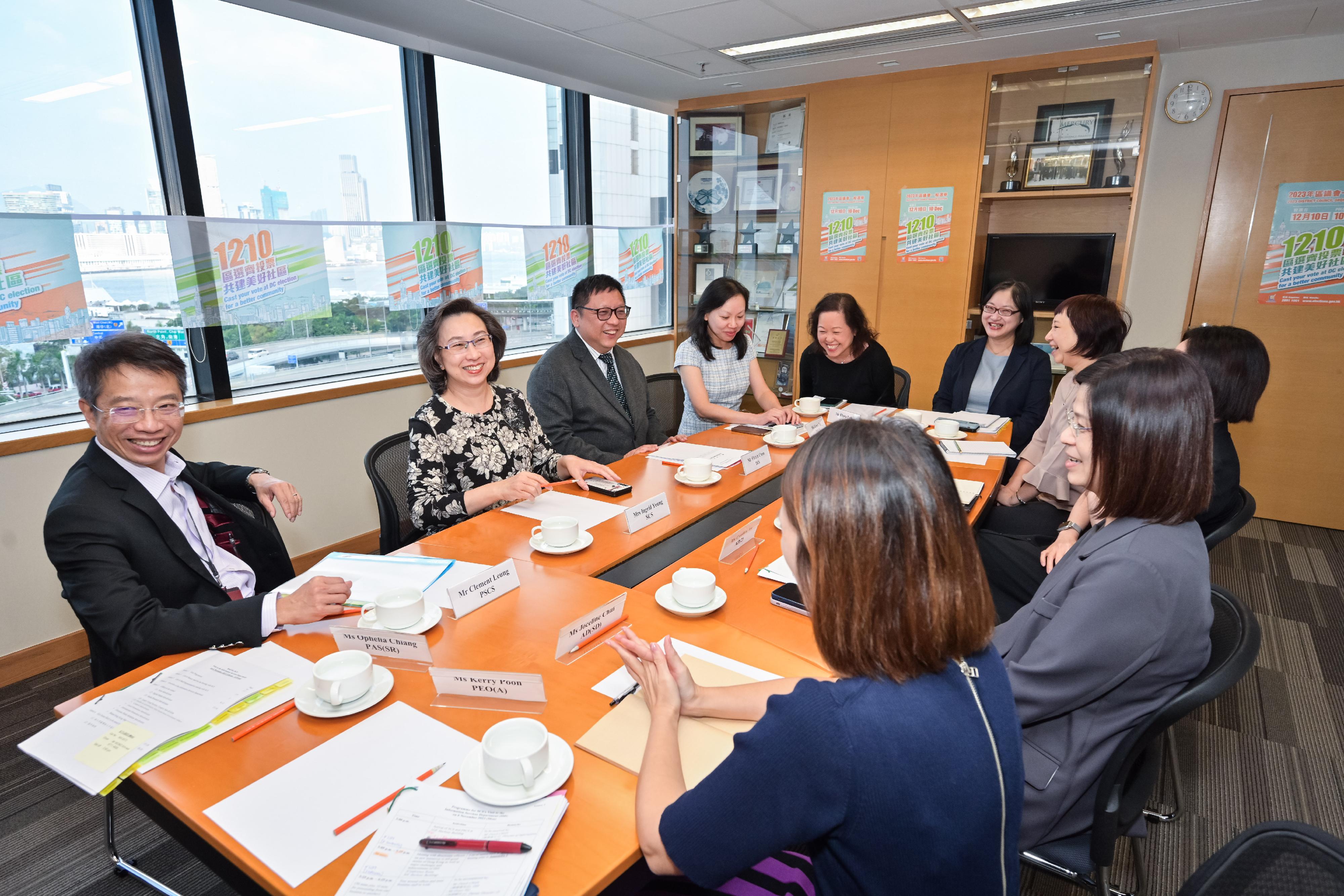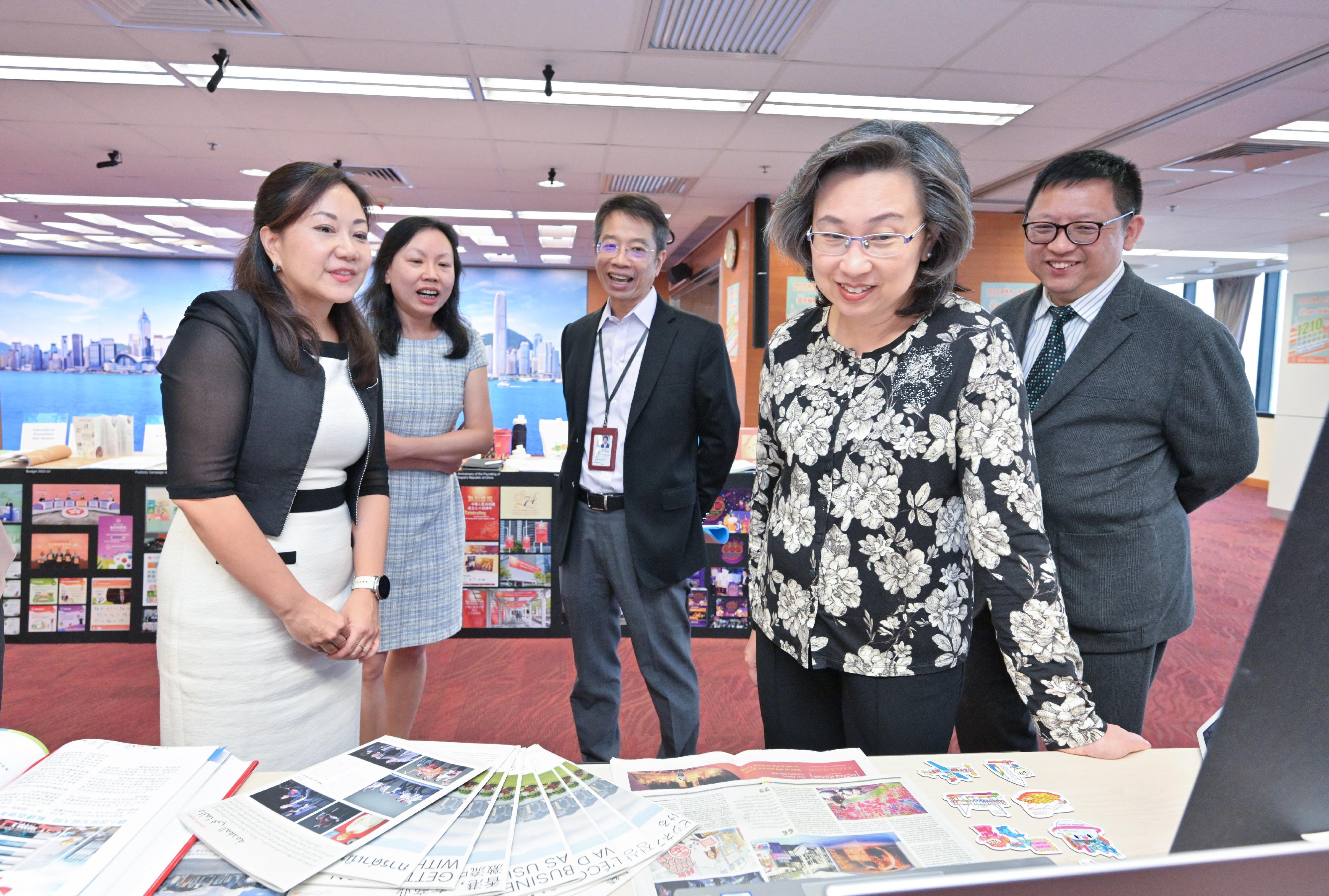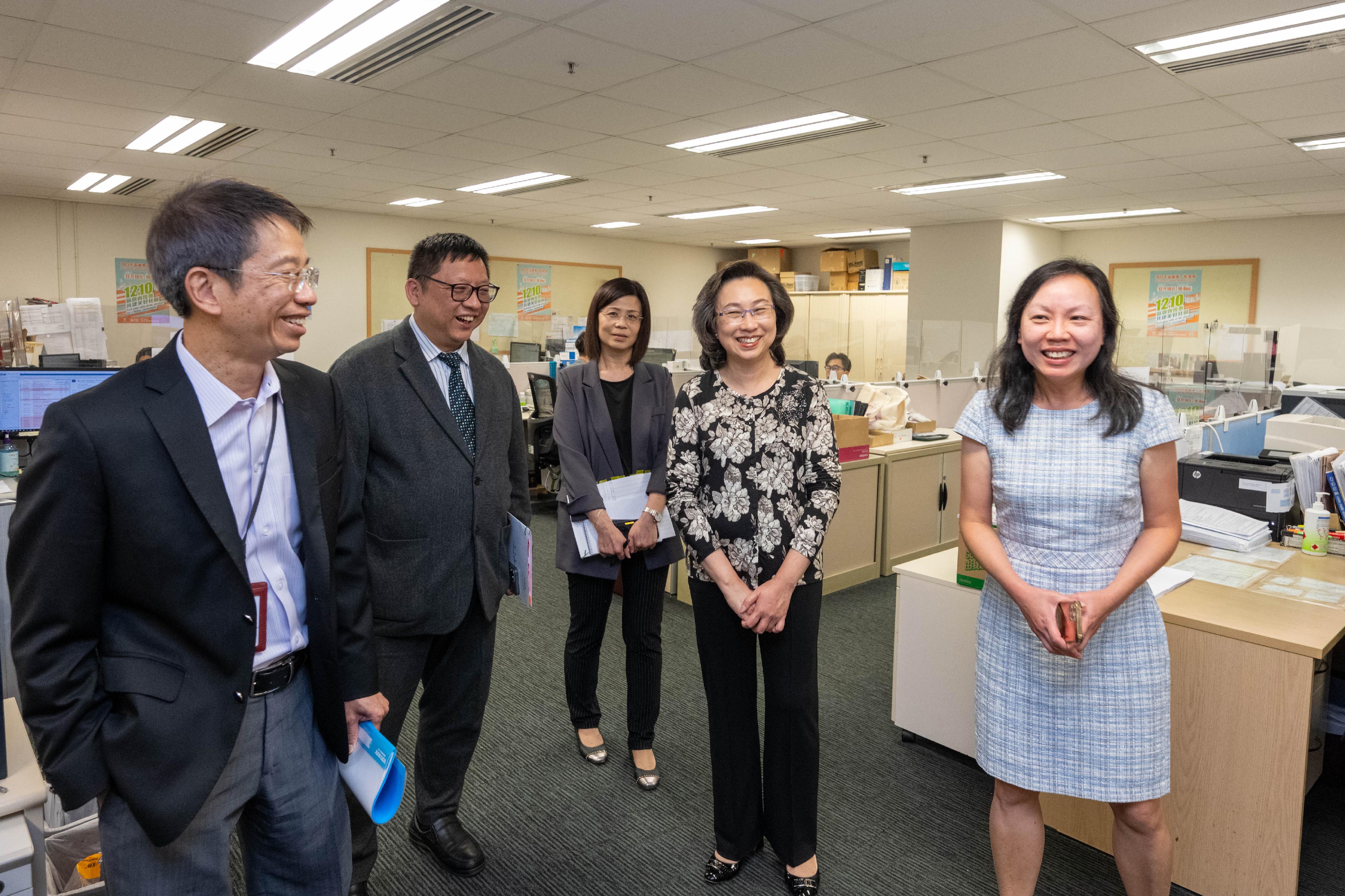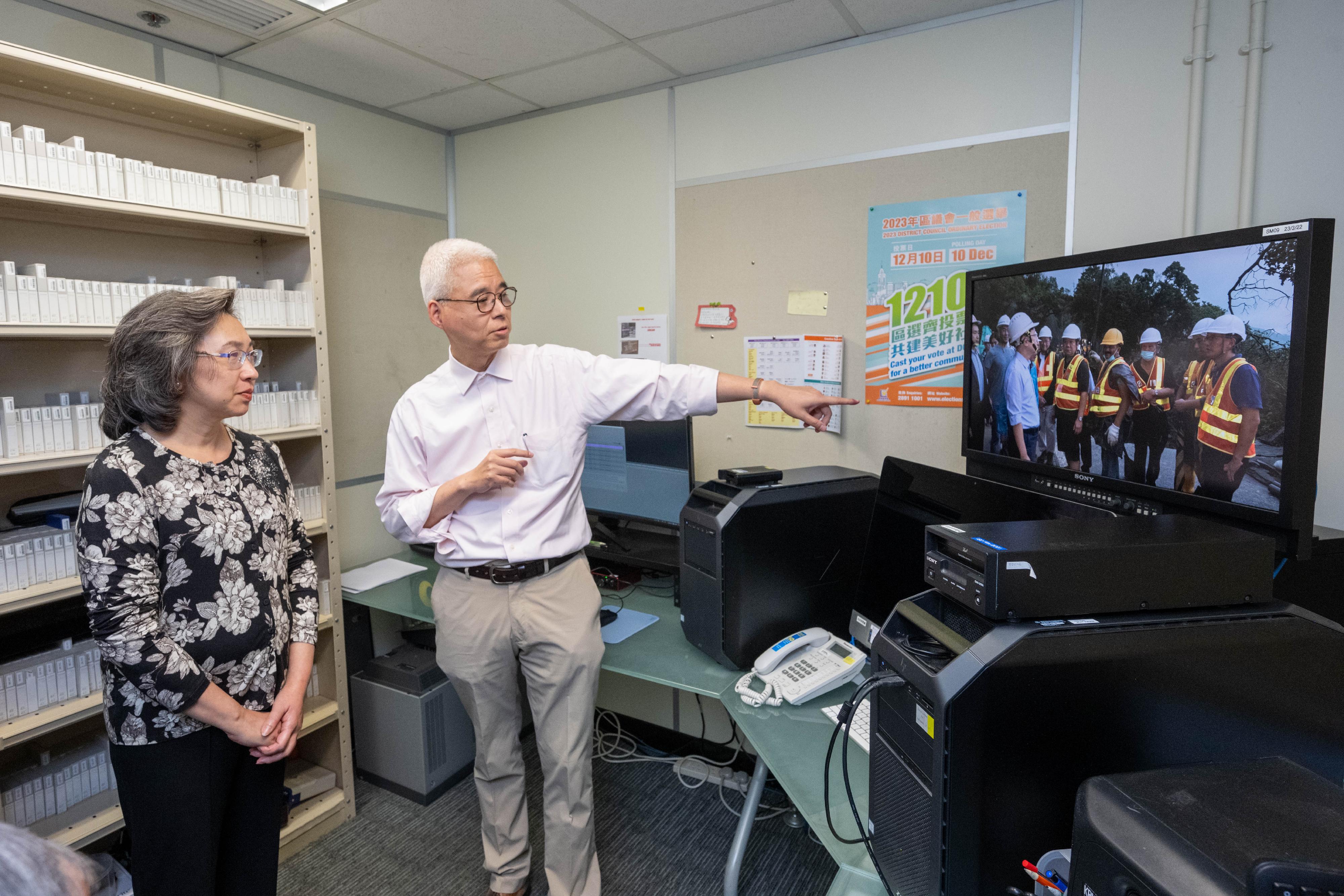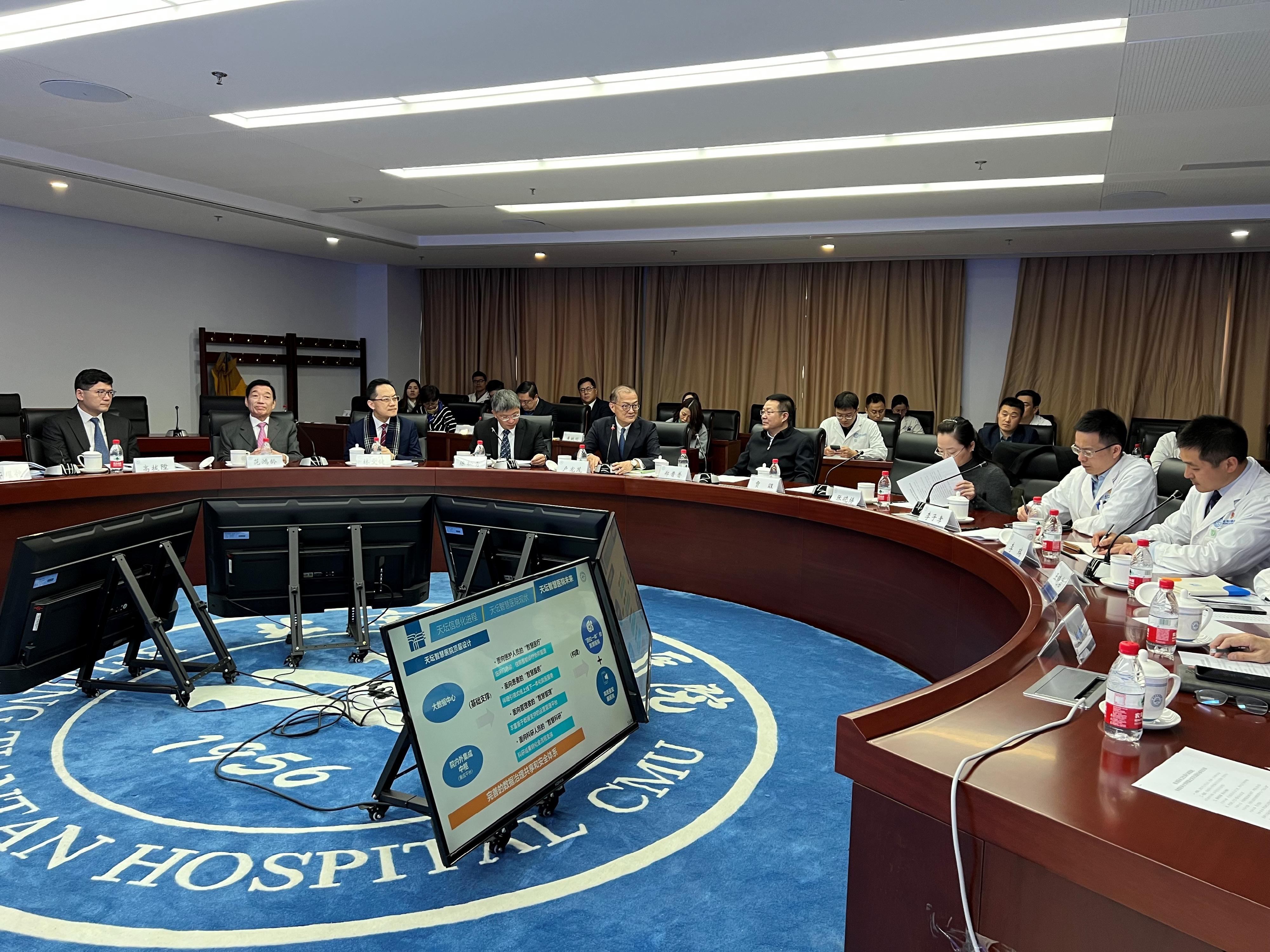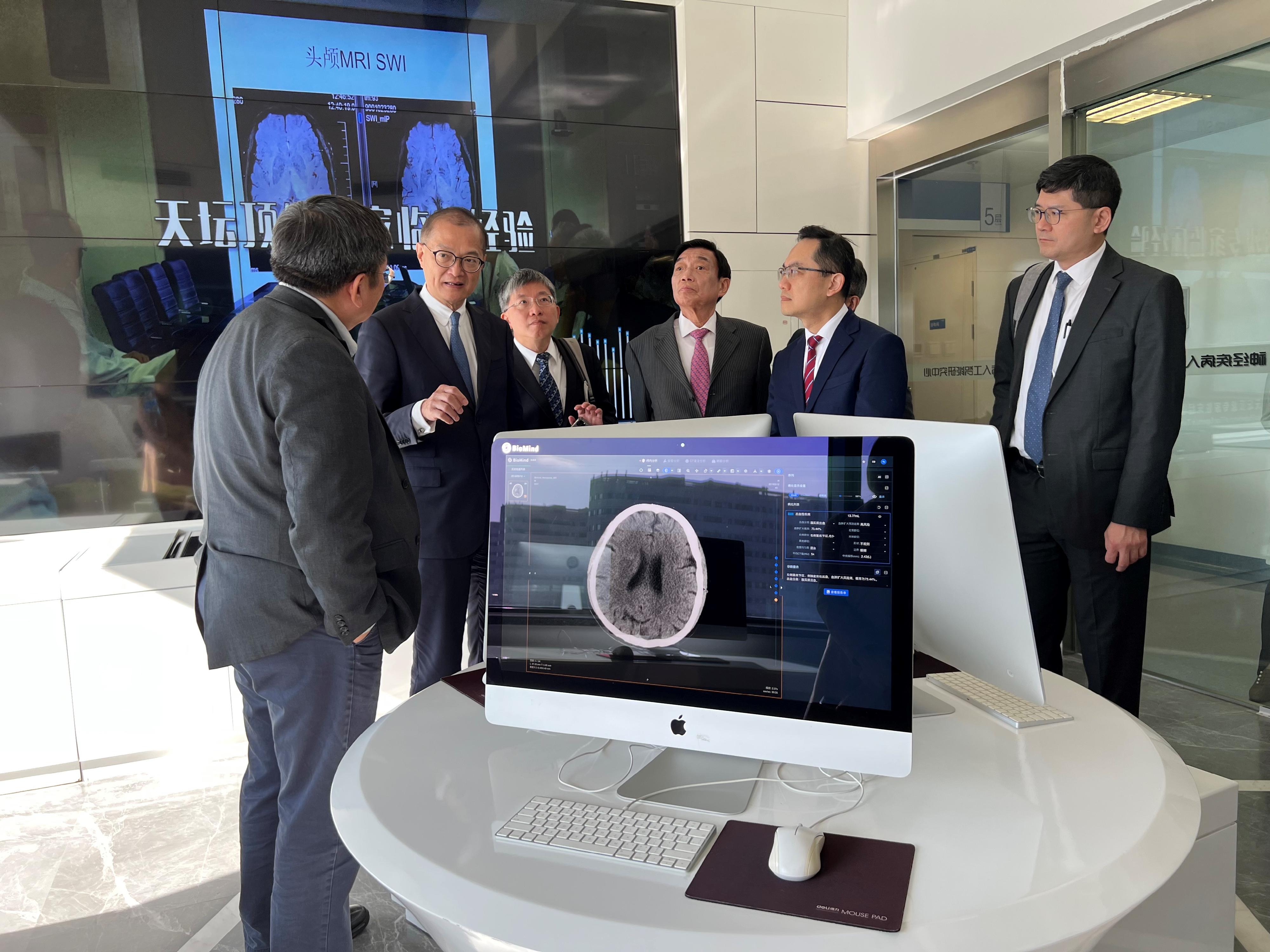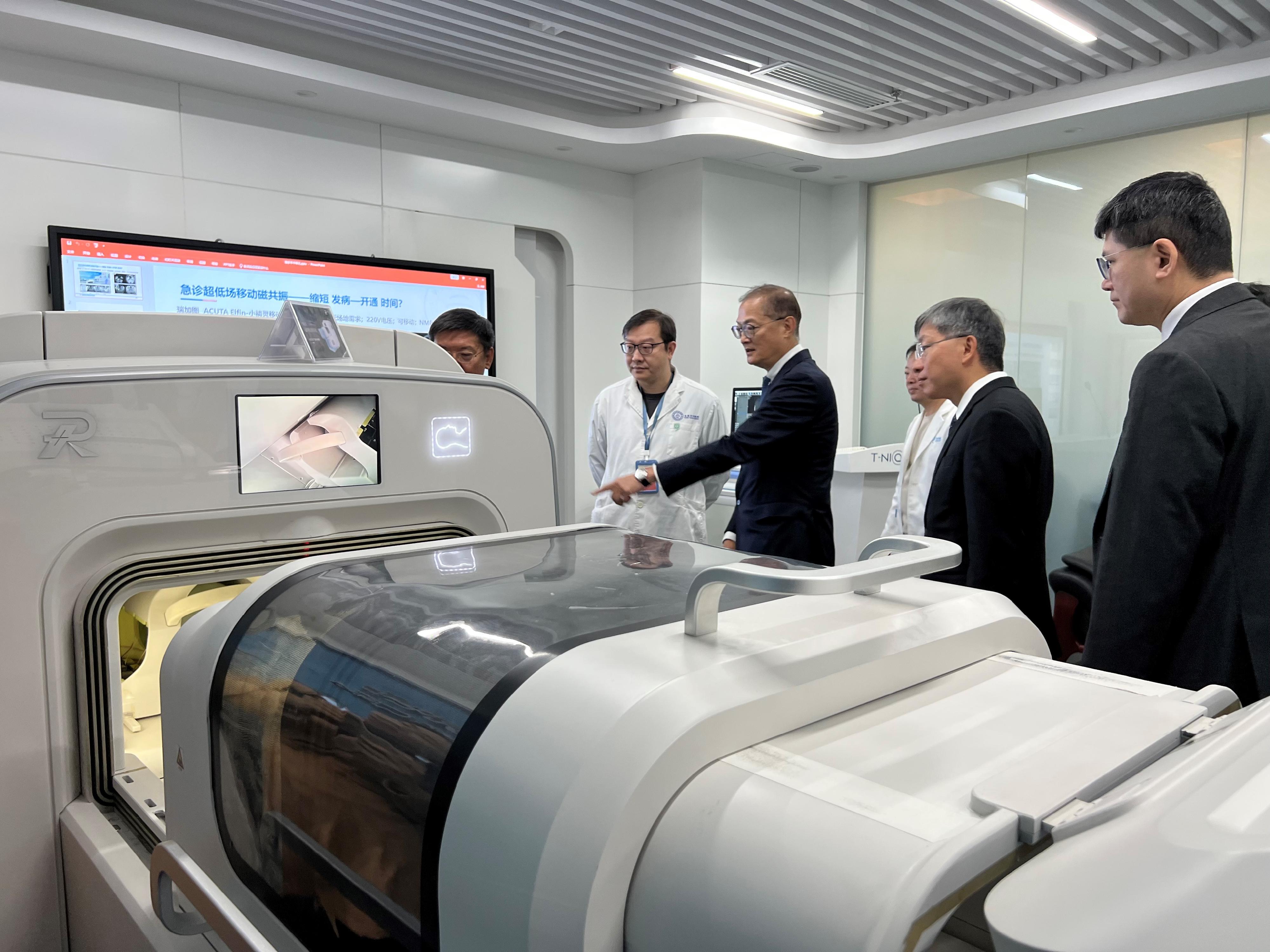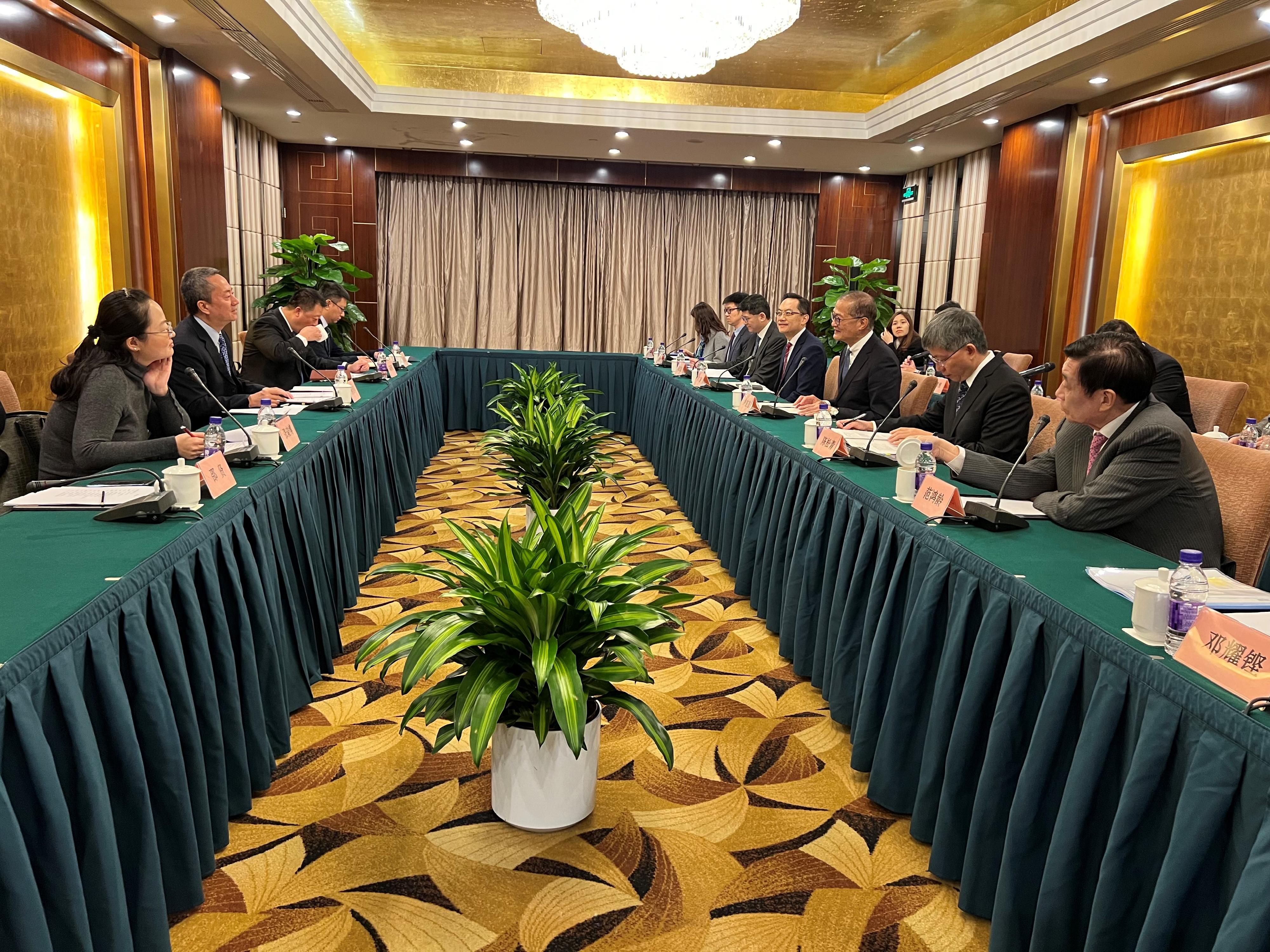Following are the closing remarks by the Deputy Secretary for Justice, Mr Cheung Kwok-kwan, at the 5th UNCITRAL Asia Pacific Judicial Summit – Judicial Conference under the Hong Kong Legal Week 2023 today (November 6):
Ms Anna Joubin-Bret (Secretary of United Nations Commission on International Trade Law (UNCITRAL), Ms Anna Joubin-Bret), Your excellencies, distinguished guests, ladies and gentlemen,
It is my great honour to address you today at the closing of the Judicial Conference of the 5th UNCITRAL Asia Pacific Judicial Summit 2023, a remarkable event jointly organised by UNCITRAL and the Department of Justice of the Hong Kong Special Administrative Region.
I am very pleased to witness the successful conclusion of the Judicial Conference which has underscored the importance of international collaboration and knowledge-sharing in shaping the future of international trade law and dispute resolution. Today’s discussions have provided us with valuable insights and will serve as a catalyst for conducting further exchanges and dialogues among judges, officials, legal experts, professionals and other stakeholders in the future.
As we reflect on the four sessions held throughout the day, it is evident that the topics covered hold profound implications for post-pandemic resilience as well as the new beginnings and innovations in international trade law and dispute resolution.
United Nations Convention on the International Effects of Judicial Sales of Ships (the Beijing Convention)
Session 1 of today’s conference focused on the United Nations Convention on the International Effects of Judicial Sales of Ships, also known as the Beijing Convention on the Judicial Sale of Ships, which was recently signed in Beijing in September 2023.
The Beijing Convention establishes a harmonised regime to give international effect to judicial sales of ships, while respecting domestic law governing the procedure of judicial sales and the conditions under which such sales confer clean title. By providing legal certainty regarding the title acquired by the purchaser as the ship navigates internationally, the Convention aims to maximise the ship’s market value and the proceeds available for distribution among creditors, thereby promoting international trade.
Hong Kong notes with great interest the development and signing of the Beijing Convention. In fact, representatives from Hong Kong, including my colleagues in the Department of Justice, actively participated as part of the Chinese delegation in the negotiation of the Convention.
The discussions during Session 1 clearly highlighted the benefits of the Beijing Convention and its relevance to ship financing and maritime trade. It is therefore not surprising that some have expressed the wish to witness its entry into force in the near future.
UNCITRAL texts on MSMEs
In Session 2, we discussed various UNCITRAL texts on micro, small and medium-sized Enterprises, MSMEs, which play a pivotal role in post-pandemic international trade, driving economic recovery and job creation, and fostering market innovation and competition, especially in this region. According to the information from Asia Pacific Economic Cooperation (APEC), MSMEs account for over 97 per cent of all businesses and employ over half of the workforce across APEC economies. They contribute significantly to economic growth, with their share of GDP (Gross Domestic Product) ranging from 40 per cent to 60 per cent in most APEC economies. It is therefore crucial for the international community to establish a common framework that facilitates MSMEs’ operation and participation in international trade. Recently, the APEC Economic Committee has developed and launched the APEC Collaborative Framework for Online Dispute Resolution of Cross-Border Business to Business Disputes (APEC ODR Framework) to use online dispute resolution (ODR) to help global businesses, in particular MSMEs, resolve cross-border disputes.
At the UN level, the UNCITRAL Legislative Guide on Limited Liability Enterprises (2021) has been developed to assist states in designing a more simplified legal form for MSMEs that can best facilitate their formation and operation in the formal economy, reducing the legal barriers faced by MSMEs and enhancing their sustainability and chances of success.
A well-designed legal framework for MSMEs can improve their access to credit, which is critical for their continued contribution to economic development. On the other hand, the special characteristics of MSMEs, such as intermingled business and personal debt, and ownership and management overlap, necessitate special legal considerations in cases of insolvency.
Over the past decade, China’s Belt and Road Initiative has opened up markets, boosted business and investment activities, and facilitated people, goods and tourism flows. Hong Kong, as a “super-connector” under the “one country, two systems” principle, has also signed a number of free trade agreements with our trading partners. As Hong Kong strengthens its status as an international trade centre, an international innovation and technology centre, and an East-meets-West centre for international cultural exchange, we must harness the enormous potential of MSMEs in the Belt and Road region and provide a platform for Mainland MSMEs to “go global”, and for overseas MSMEs to access the Belt and Road markets, by use of Hong Kong as a springboard.
By empowering MSMEs and fostering a supportive legal environment, we will unlock their full potential in achieving prosperity for all.
UNCITRAL’s recent work on dispute resolution (digital economy, insolvency and climate change)
Session 3 highlighted UNCITRAL’s recent work on dispute resolution, ranging from the topics of digital economy, insolvency, as well as climate change. Session 3 therefore holds particular relevance for Hong Kong as an international legal and dispute resolution services centre in the Asia-Pacific region. Under the “one country, two systems” principle, Hong Kong’s common law system has a strong heritage and enjoys a reputable position in the global community. Our well-established legal system and professionals provide a solid platform for international investment and effective dispute resolution.
In the digital economy era, Hong Kong has been proactive in embracing digital dispute resolution solutions. Our initiatives in ODR, such as the eBRAM Centre, which is also a listed ODR service provider under the APEC ODR Framework, provide MSMEs with efficient and accessible means of resolving disputes. By harnessing the power of technology, we empower businesses to navigate the complexities of the digital economy and seek redress effectively.
In Session 3, we have also heard about UNCITRAL’s efforts in harmonising cross-border insolvency laws. In Hong Kong, we are delighted to share our experience on this front. The record of meeting on Mutual Recognition of and Assistance to Bankruptcy (Insolvency) Proceedings between the Courts of the Mainland and Hong Kong signed between the Department of Justice and the Supreme People’s Court of the People’s Republic of China in May 2021, provides for the mutual recognition of and assistance to insolvency proceedings between these two jurisdictions. I am confident that the continued effective implementation of this unique arrangement would go a long way to facilitate and encourage the rescue of financially troubled businesses which have commercial presence in both Hong Kong and the Mainland, which may also shed light for development of a co-operative mechanism for other jurisdictions and internationally, and hopefully reinforces UNCITRAL’s efforts in this area.
Speakers have also shared their insightful views on climate change-related disputes. Alternative means of dispute resolution such as mediation would be particularly suitable for resolving certain types of climate change disputes. For example, mediation fosters collaborative problem solving, and offers flexible, mutually acceptable and enforceable solutions that promote long-term sustainability. In Hong Kong, we watch over closely UNCITRAL’s work in the area of mediation, from the UNCITRAL Mediation Rules (2021), which provide internationally harmonised procedural rules for conducting mediation in the context of international commercial relation, to the United Nations Convention on International Settlement Agreements Resulting from Mediation, which establishes a harmonised legal framework for enforcing settlement agreements resulting from mediation.
As an international legal and dispute resolution services centre, Hong Kong is committed to promoting the use of mediation. This is exemplified by our recent participation in the important initiative led by China and other states in establishing a permanent inter-governmental organisation, namely the International Organization for Mediation, which will be dedicated for providing mediation services for resolving international disputes. The fact that the International Organization for Mediation Preparatory Office was set up in Hong Kong early this year is a testament to Hong Kong’s unique role as an international dispute resolution hub, which is best suited to further the development of mediation.
UNCITRAL’s recent work on dispute resolution demonstrates the international community’s dedication to improving and modernising mechanisms for resolving cross-border disputes. For our part, as an international legal and dispute resolution services centre, Hong Kong will definitely continue to play a key role in contributing to these efforts.
UNCITRAL’s work on digital economy and trade
In Session 4, we discussed UNCITRAL’s recent work on digital economy and trade, an area also of immense relevance to Hong Kong as an international trade centre and an international innovation and technology centre. The discussion underscored the invaluable contributions made by UNCITRAL in the ongoing development of laws governing e-commerce and digital trade.
Over the years, UNCITRAL has prepared a suite of legislative texts to enable and facilitate the use of electronic means in commercial activities, which have been widely adopted. The most widely used text is the UNCITRAL Model Law on Electronic Commerce (1996), which establishes rules for the equal treatment of electronic and paper-based information, as well as the legal recognition of electronic transactions and processes. It is worth noting that Hong Kong’s Electronic Transactions Ordinance (Cap. 553) was in fact modelled on UNCITRAL Model Law on Electronic Commerce (1996), clearly demonstrating our commitment to international standards and best practices.
Recent advancements in information and communications technology continue to raise novel legal questions, which have far-reaching implications for international trade and require collaborative efforts to ensure a harmonised and effective legal framework.
The recent Taxonomy of legal issues related to the digital economy (2023) is a prime example showcasing UNCITRAL’s diligent work in facilitating international collaboration to address these emerging challenges. This instrument covers a wide range of topics relevant to the development of digital economy, from artificial intelligence, data, digital assets, to online platforms and distributed ledger systems. The text serves as a useful stocktaking record of the current issues in the context of electronic commerce, and no doubt would provide a roadmap to guide our future discussions.
Concluding remarks
Ladies and gentlemen, it is my pleasure to announce the successful conclusion of the Judicial Conference of the 5th UNCITRAL Asia Pacific Judicial Summit 2023. The success of this event counts on the collective efforts and dedication of UNCITRAL and our colleagues at the Department of Justice, as well as the esteemed judges, speakers, moderators and participants from around the world. Once again, I extend my heartfelt thanks to everyone who contributed to the success of the Judicial Conference.
With the conclusion of the Judicial Conference, the first day of Hong Kong Legal Week 2023 also draws to an end. We welcome all of you to join the rest of the exciting events that we have prepared for you this week, covering a wide range of topics. For the judges, we will see you again at the Judicial Roundtable tomorrow morning to continue our exchanges and discussion. For the other participants, we look forward to seeing you again at the Legal Forum on Interconnectivity and Development tomorrow afternoon or the other exciting events later this week.
Thank you once again, and I wish you all a successful and enriching experience throughout the Hong Kong Legal Week 2023. For those who come from abroad, I hope that you will make the best use of your time and enjoy your stay in Hong Kong. Thank you very much. read more


